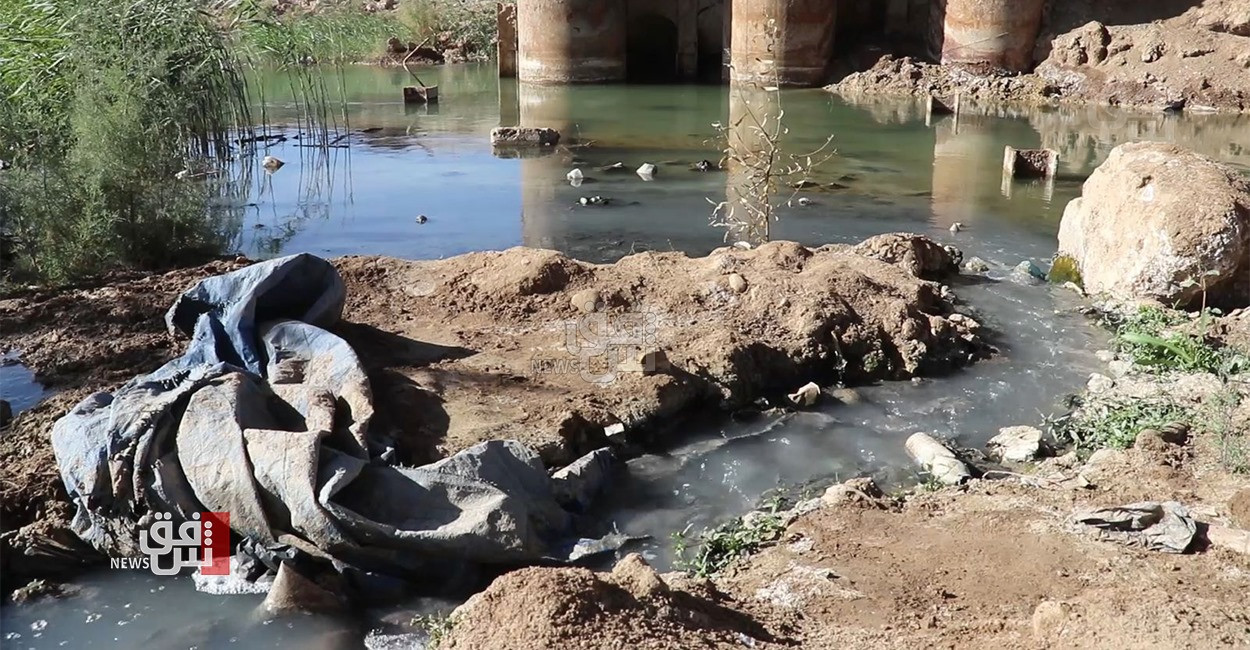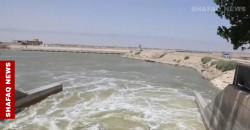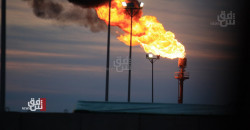Basra faces 'Frightening' levels of pollution-related diseases, officials say

Shafaq News/ Authorities in Iraq's oil-rich Basra governorate have raised alarm over an escalating health crisis, describing "frightening" levels of pollution-related diseases, while warning that untreated wastewater and industrial emissions are endangering the population and environment.
Environmental Crisis in Basra
The Health and Environment Committee of Basra's Provincial Council raised alarms over the high number of people suffering from diseases linked to environmental pollution. The Ministry of Environment described the discharge of untreated wastewater into the Shatt al-Arab as a “real threat” to public safety.
Ali Adnan, head of the committee, told Shafaq News Agency that pollution in Basra has reached critical levels. “Basra suffers from contamination in the land, water, food, and more. There is nothing unpolluted in the governorate. The figures for disease rates are frightening, but we lack precise statistics,” Adnan said.
Wastewater Crisis
Adnan noted that the discharge of untreated wastewater into rivers further contaminated the Shatt al-Arab waterway. "Some of the materials consumed by citizens are either untested or only superficially examined. Basra’s Environmental Department has fewer than 170 employees, insufficient for a governorate of this size. Basra’s border crossing alone requires at least 200 staff," he added.
Adnan said the environmental sector in Basra is severely underdeveloped but noted efforts are underway to address these issues, beginning with wastewater management. "There are nine pipelines discharging wastewater into the shores, which will be monitored for solutions," he said.
Water and Air Pollution Concerns
Loui Sadiq al-Mukhtar, a spokesman for the Ministry of Environment, identified water pollution as Basra’s primary issue, followed by air pollution. He attributed water contamination to high salt content and the discharge of sewage into the Shatt al-Arab. “Sewage disposal is a major problem in Basra [a population of about 4 million] due to a lack of infrastructure. The Hamdan treatment plant handles only 20% of the waste, and citizens are discharging into the rivers,” he said.
Air pollution from oil industries is also a growing concern. Al-Mukhtar described it as “one of the most dangerous types of pollutants because air travels quickly, spreading contamination across a wide area.” He noted that while most oil facilities are located away from Basra’s major cities, nearby villages are affected by harmful emissions, including sulfur oxides and hydrocarbon pollutants. "Though mitigated by distance, pollution levels remain concerning," he added.
Progress on Gas Flaring
Al-Mukhtar pointed out that the Ministry of Oil is working to reduce air pollution by utilizing 65% of associated gas at oil fields and plans to increase this figure over the next two years. "The goal is to reduce air pollution gradually, to eliminate it by 2028," he said.
Decades of Pollution
Environmental expert Falah al-Amiri, Director of the Environmental Justice and Climate Security Program in southern Iraq, noted that pollutants have been accumulating in Basra since the 1980s, exacerbated by increased oil extraction post-2003. “This has led to the spread of various diseases, particularly in rural areas,” he said.
Al-Amiri also highlighted pollution in water and soil, rising sea levels, and government neglect in addressing environmental policies and healthcare services. He warned of a direct correlation between proximity to oil facilities and disease prevalence. "Diseases such as leukemia, pneumonia, respiratory infections, and kidney failure are more common near oil extraction sites," he said.
Al-Amiri emphasized the need for improved public health awareness and pollution control efforts in Basra.





